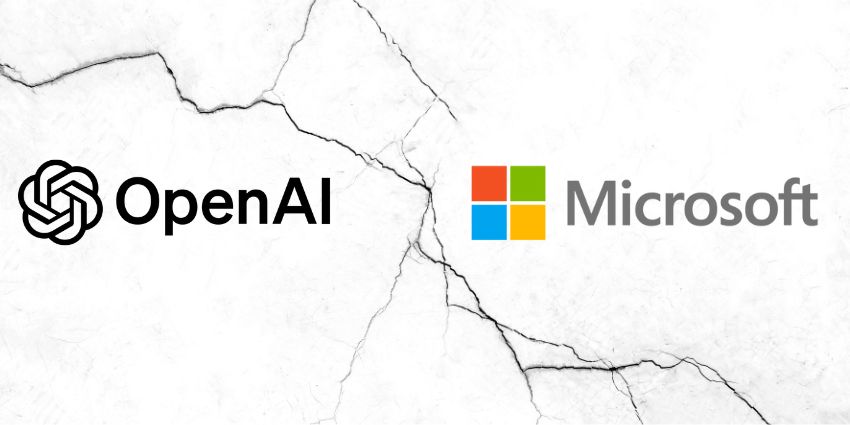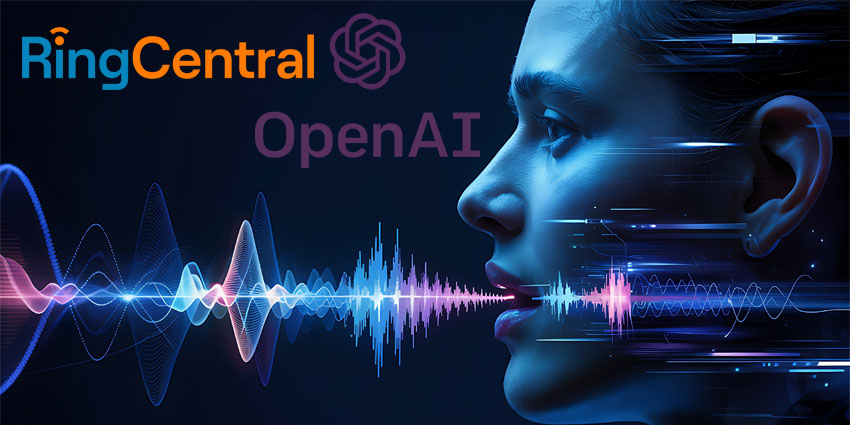Microsoft’s partnership with OpenAI could end up in tatters just like it did with Slack, Salesforce CEO Marc Benioff claims as he takes fresh aim at the tech company.
“That was pretty bad and they were running their playbook and did a lot of dark stuff,”
Benioff told SaaStr CEO Jason Lemkin in a recent video podcast.
“That playbook should get ripped up and thrown away.”
Benioff referred to the European Commission’s ongoing investigation into Microsoft’s bundling of Teams with Office 365, a move that prompted Slack to file a complaint in July 2020.
Benioff has not been the best of friends with Microsoft.
However, the Salesforce CEO has previously also said that OpenAI’s close partnership with Microsoft was putting the company at risk.
“I think it’s extremely important that OpenAI gets to other platforms because Microsoft is building their own AI, and I don’t think Microsoft will use OpenAI in the future.”
Salesforce has been competing with Microsoft in the UC space with its acquisition of Slack in 2020, which could go to explain his criticisms here.
But is this just bluster from an adversary? Or does something ring true in what Benioff is saying about this being a pattern for Microsoft, and if so, could it repeat with OpenAI?
Microsoft’s History with Slack
Microsoft’s history with Slack is defined by intense rivalry and strategic maneuvering in the enterprise collaboration market.
Emerging as one of the first workplace messaging leaders, Slack debuted in 2014 and offered many of the UC functionalities many platforms use today.
Microsoft launched its UC platform Teams in 2017, bringing intense competition between the two.
Slack initially wrote an open letter welcoming Microsoft to the market over its Teams debut.
However, relations soon turned south from there. Microsoft made Teams integrated as part of its Office 365 suite. This bundling gave Teams a significant competitive advantage.
Yet it led Slack to accuse Microsoft of anti-competitive behavior and even file an EU complaint.
“You can see the horrible things that Microsoft did to Slack before we bought it,” Benioff said.
“That was pretty bad and they were running their playbook and did a lot of dark stuff. And it’s all gotten written up in an EU complaint that Slack made before we bought them.”
In April 2024, Microsoft announced it would separate Teams into a standalone licensed product, no longer including it with Office 365/Microsoft 365 plans.
However, the damage was arguably done, and Benioff compared the move to Microsoft’s ‘browser wars’ with Netscape in the late 1990s, which saw Microsoft bundling its Internet Explorer browser with Windows.
OpenAI’s Position with Microsoft
The relationship between Microsoft and OpenAI is arguably different.
Firstly, it is a partnership as opposed to a rivalry.
Secondly, Microsoft itself is heavily invested in OpenAI.
Being one of the first movers, Microsoft has invested a total of $13.75 billion in OpenAI.
OpenAI licensed its GPT-3 model exclusively to Microsoft in 2020, which gave the giant the right to integrate OpenAI’s models into its products.
As a result, Microsoft Copilot has been powered solely by OpenAI models, particularly GPT-4.
This has allowed Microsoft to take advantage of OpenAI’s capabilities as its AI abilities and use them immediately, without having to wait to build up its own capabilities.
Microsoft has benefited greatly from this partnership, with Copilot now being one of the most used AI systems on the market.
It’s for reasons like this that OpenAI CEO Sam Altman once called the company’s relationship with Microsoft “the best bromance in tech.”
However, despite enjoying the fruits of the partnership, signs have emerged that a rift could be developing.
Reuters reported in December 2024 that Microsoft has been working on adding internal and third-party AI models to power its flagship AI product Microsoft 365 Copilot.
This was floated as a bid by the tech titan to diversify from the current underlying technology from OpenAI, improve speed, and, importantly, reduce costs.
“The goal is to make it less expensive for Microsoft to run 365 Copilot and potentially pass along those savings to the end customer,” one of the sources said.
As a result, Microsoft is reportedly developing smaller AI models in-house and is looking at third-party AI models to integrate into Microsoft 365 Copilot.
Equally, following OpenAI and SoftBank’s announcement that they’ll participate in the $500 billion Stargate project, which is designed to facilitate the construction of data centers across the US, Microsoft lost its status as the ChatGPT maker’s exclusive cloud provider.
Hot off the heels of a strong earnings call, this week Microsoft’s CEO Satya Nadella claimed its AI model performance is “doubling every 6 months.”
Benioff recently noted that OpenAI revealed its technology stack without any mention of Microsoft, hinting that this further highlights the divergence between the companies.
“That was extremely interesting and you can see how Microsoft is really starting to run a separate playbook against OpenAI,”
he said.
“I think that’s now how Microsoft thinks,” he added. “Microsoft is a company that wants to own it all, control it all. If they see a hot company or hot startup, they ask themselves: ‘Hey, why is that not in our world?’
“They feign an acquisition and then, based on that, they execute a playbook – or in the case of OpenAI, a partnership is gonna become a competition.”
Will Microsoft Call Time on OpenAI?
In an interview last month, Microsoft AI CEO Mustafa Suleyman argued it’s more cost-effective to trail frontier model builders, including OpenAI, by three to six months.
However, he included the caveat to build on their successes rather than compete with them directly.
“Our strategy is to play a very tight second, given the capital intensiveness of these models,” he told CNBC on Friday.
Suleyman argued the extra time enables Microsoft to optimize for specific customer use cases.
Therefore, although there are some cracks showing in the collaboration, if a split is coming, it may not be immediate.
Yet for people like Benioff, the history and current jitters should be enough to have OpenAI running for the hills.
Would Microsoft ending its partnership with OpenAI make you consider switching from Teams?
byu/Kris_The_UC_Scribe inuctoday







